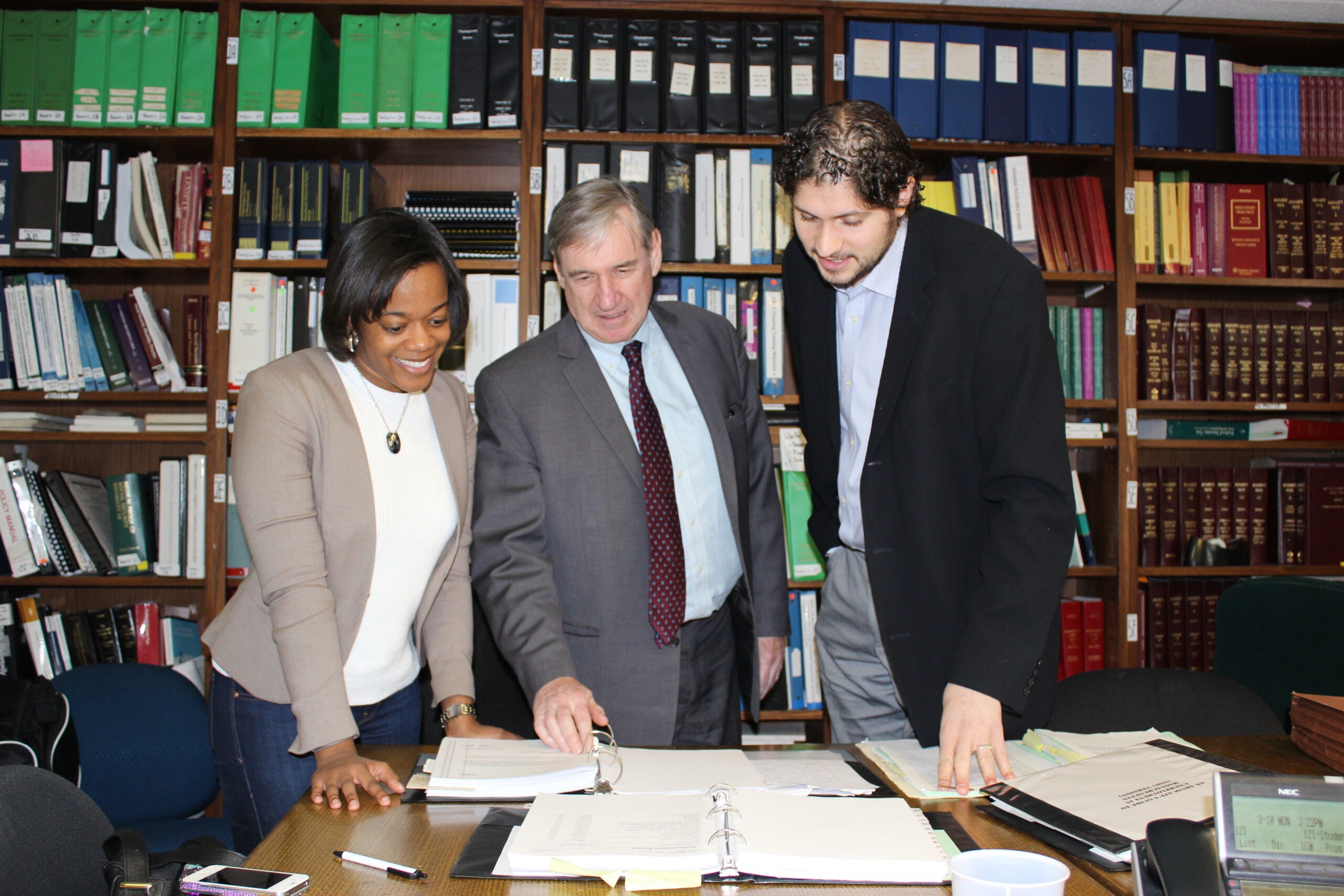This report has been adapted from a post that originally appeared on the HLS Clinical and Pro Bono Programs’ blog.
On January 28, 2014, Harvard Legal Aid Bureau (HLAB) student attorneys Nicholas Pastan ’15 and Breana Ware ’14 found themselves conducting a trial in federal court and asking a Judge to decline to enforce a Petition brought against their client pursuant to the Hague Convention on the Civil Aspects of International Child Abduction. In a one-day trial in the United States District Court for the District of Massachusetts, the students helped their client testify about the years of sexual and emotional abuse she and her children suffered. They fled in mid September 2013, when they walked across the Canadian border to the United States.
Although Pastan and Ware knew from the beginning that this case was not the typical HLAB case, they never imagined that they would find themselves in a federal courtroom only twelve weeks after signing on as the client’s student attorneys. In fact, in October 2013 HLAB only accepted the case to help the client procure a G.L. 209A abuse prevention order against her ex partner. Pastan appeared on the client’s behalf at the 209A hearing but soon realized that the case implicated the Hague Convention on the Civil Aspects of International Child Abduction.
The Hague Convention applies when a parent removes a child who is a habitual resident of one contracting country to another contracting country in violation of another parent’s custody rights. However, the Convention does not apply if returning the children to the first country would subject them to a grave risk of physical or psychological harm or expose them to an otherwise intolerable situation.
In early December, Pastan and Ware received notice from the U.S. State Department that the children’s father had filed a petition pursuant to the Hague Convention in Federal District Court in Massachusetts. At first, they questioned whether they had the ability to prepare for and execute a high-stakes federal court trial in only six weeks while juggling exams and winter break. “We sat down with our clinical instructor and looked at the schedule,” Pastan said. “We realized that under the Hague Convention, the case had to go to trial in no more than six weeks. That meant that our answer, our entire discovery, our trial briefs, and our witness preparation had to start immediately. That’s the amazing thing about HLAB; the second we looked back and said we wanted to represent this woman the whole organization got on board to help.”
After hours of working with the client and an expert witness from Children’s Hospital in Boston, they realized that they had two defenses: that the petition should be denied because Canada was not the children’s habitual residence prior to removal by the mother; and enforcing it would subject the children to a grave risk of physical or psychological harm or expose the children to an otherwise intolerable situation.
After presenting evidence on each of these issues at trial, Pastan and Ware submitted proposed findings of facts and rulings of law. They are now waiting for a date to return to court for closing arguments. “Although the experience of trying this case as a law student is exciting in and of itself,” Pastan said, “the most rewarding part was working with our client late into Sunday evenings or through the day on New Year’s Day to make sure that we were giving her the best chance to protect her kids and start a new life. Although the client and I don’t even speak the same language—she speaks Haitian Creole and French—we were able to work together to tell her story and hopefully help the Judge understand the gravity of her situation.”
“Being able to do a direct examination of a witness before a federal judge was both terrifying and exhilarating,” said Ware, “I can now say that I’ve had an experience few lawyers get, and I think that’s one of my favorite things about the Harvard Legal Aid Bureau. It’s a clinical experience that truly allows students to flourish and develop their advocacy skills through work on difficult cases that have real impacts on people’s lives.”
